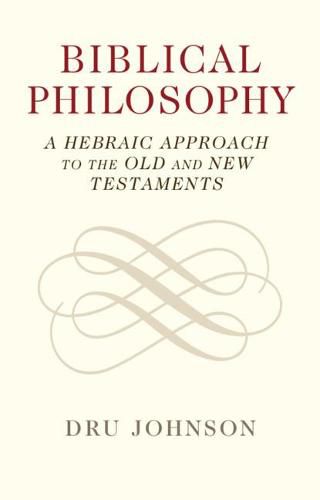Readings Newsletter
Become a Readings Member to make your shopping experience even easier.
Sign in or sign up for free!
You’re not far away from qualifying for FREE standard shipping within Australia
You’ve qualified for FREE standard shipping within Australia
The cart is loading…






In Biblical Philosophy, Dru Johnson examines how the texts of Christian Scripture argue philosophically with ancient and modern readers alike. He demonstrates how biblical literature bears the distinct markers of a philosophical style in its use of literary and philosophical strategies to reason about the nature of reality and our place within it. Johnson questions traditional definitions of philosophy and compares the Hebraic style of philosophy with the intellectual projects of ancient Egypt, Mesopotamia, and Hellenism. Identifying the genetic features of the Hebraic philosophical style, Johnson traces its development from its hybridization in Hellenistic Judaism to its retrieval by the New Testament authors. He also shows how the Gospels and letters of Paul exhibit the same genetic markers, modes of argument, particular argument forms, and philosophical convictions that define the Hebraic style, while they engaged with Hellenistic rhetoric. His volume offers a model for thinking about philosophical styles in comparative philosophical discussions.
$9.00 standard shipping within Australia
FREE standard shipping within Australia for orders over $100.00
Express & International shipping calculated at checkout
In Biblical Philosophy, Dru Johnson examines how the texts of Christian Scripture argue philosophically with ancient and modern readers alike. He demonstrates how biblical literature bears the distinct markers of a philosophical style in its use of literary and philosophical strategies to reason about the nature of reality and our place within it. Johnson questions traditional definitions of philosophy and compares the Hebraic style of philosophy with the intellectual projects of ancient Egypt, Mesopotamia, and Hellenism. Identifying the genetic features of the Hebraic philosophical style, Johnson traces its development from its hybridization in Hellenistic Judaism to its retrieval by the New Testament authors. He also shows how the Gospels and letters of Paul exhibit the same genetic markers, modes of argument, particular argument forms, and philosophical convictions that define the Hebraic style, while they engaged with Hellenistic rhetoric. His volume offers a model for thinking about philosophical styles in comparative philosophical discussions.